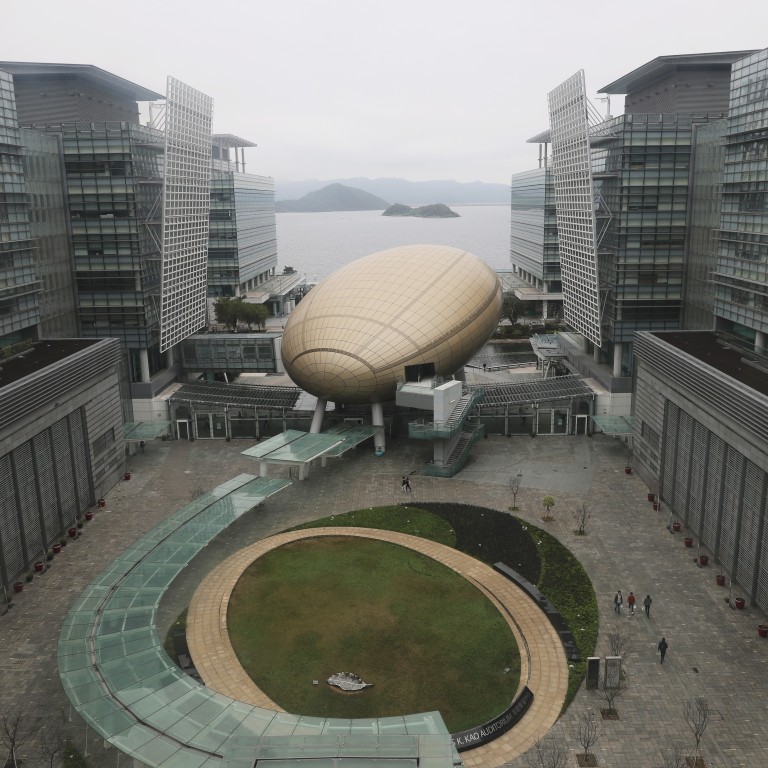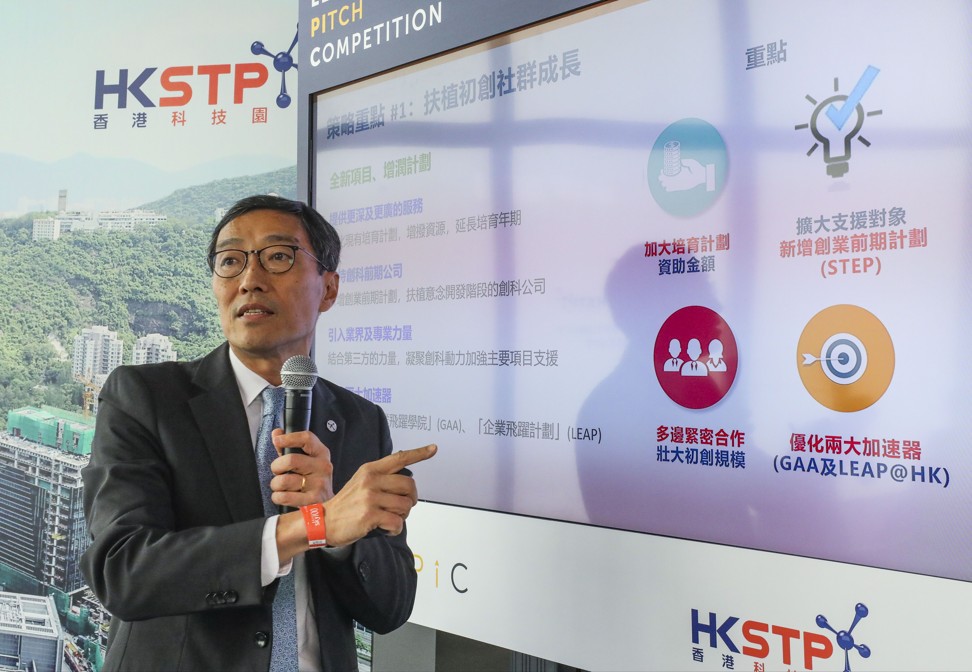
Hong Kong Science Park on track to attract top-notch research institutes as part of tech push, CEO says
- The city is competing for talent, capital and start-ups with other hi-tech hubs like Singapore, Israel and Silicon Valley
The government-run company, which manages the Hong Kong Science Park in Sha Tin, has vetted and is poised to award successful applicants in the next few weeks, Wong said in an interview on the sidelines of the RISE conference in the city on Tuesday.
It has also disbursed financial support to its tenants, revamped its incubation programme for start-ups and is getting approval to support promising companies with strong core technology with grants to help them with capital and operating expenditure, he said.

In October last year, the Science Park announced a wide array of new initiatives as well as enhanced programmes and support services aimed at strengthening and accelerating the growth of Hong Kong’s innovation and technology sector and start-ups.
Those new measures are the first phase of roll-outs using the HK$10 billion funding support provided by the Hong Kong government. The focus is on nurturing start-ups of different stages to achieve their next level of growth.
That effort would enhance the park’s current suite of value-added services to attract talent and funding, as well as build a strong and robust portfolio of innovation and technology companies, helping create new opportunities for business and employment, according to Peter Mok, the park’s head of incubation and acceleration programmes, in a separate written statement.
Commenting on the current tensions between China and the US, Wong said Hong Kong is benefiting to some degree based on the increase in inquiries over the past six to nine months for overseas talent to be based in the city. Indeed, interest has risen even before the election of US President Donald Trump, he said.
Hong Kong Science and Technology Park gives tech tenants a bonanza with US$893 million worth of measures
Chinese researchers, academics and university graduates have reported facing more suspicion in the US, especially in industries that may have military applications, such as in aerospace and advanced materials. Some have faced lengthy reviews for visa applications, causing them to give up job offers.
“I spent four hours recently speaking with professors and medical students at Chinese University,” Wong said, adding that it was encouraging as typically many top students in Hong Kong tend to choose to go into medicine. “They all wanted to do something in tech, want to know how to set up a company.”


